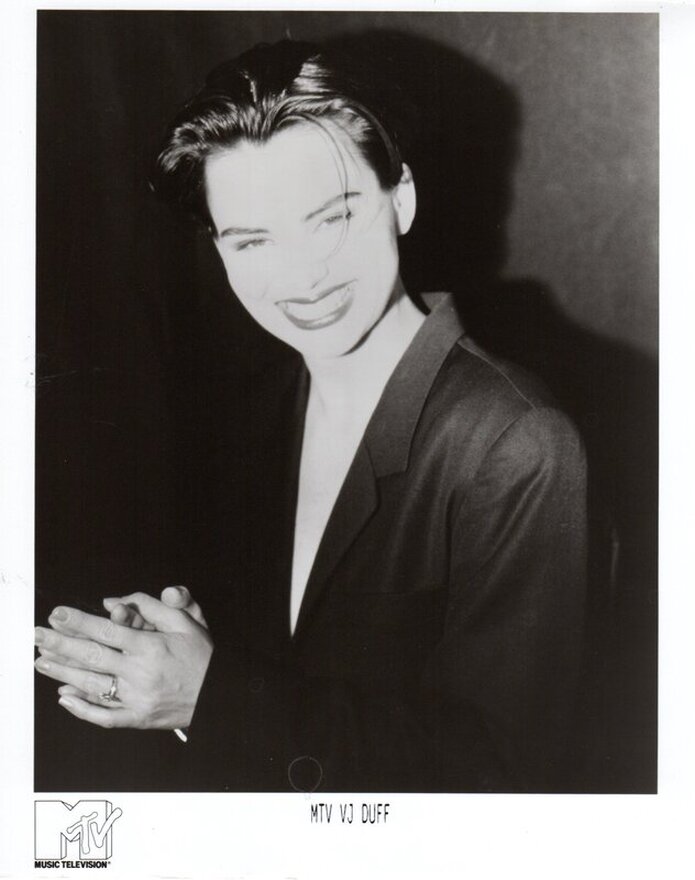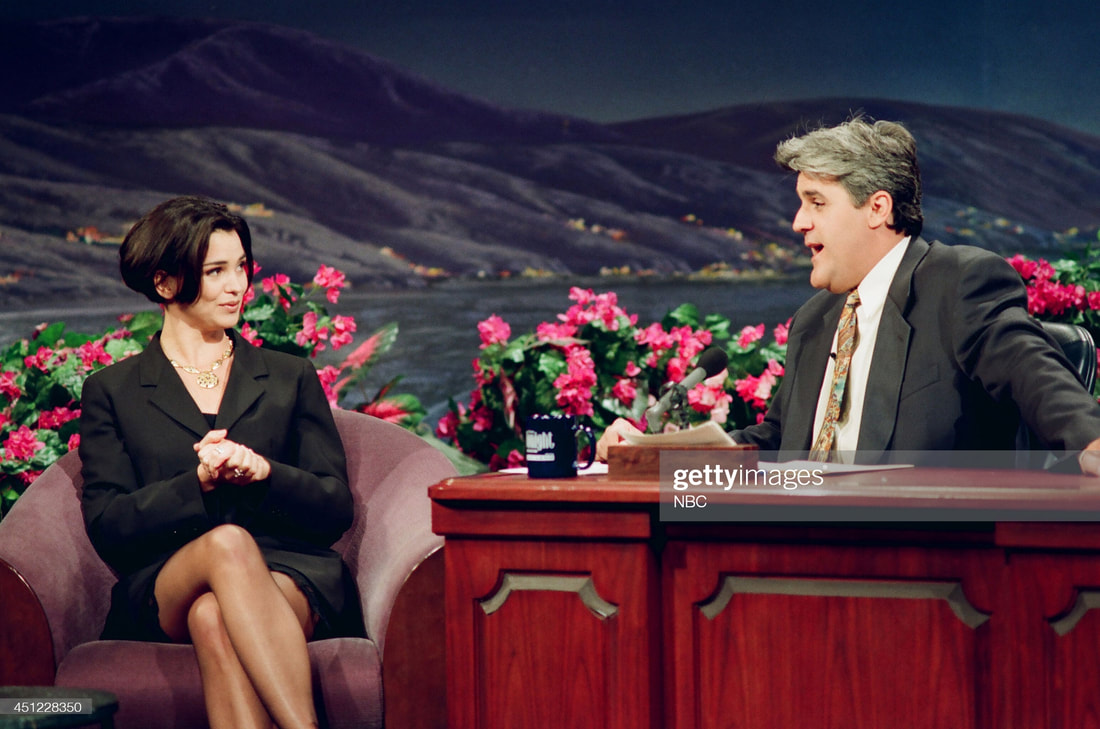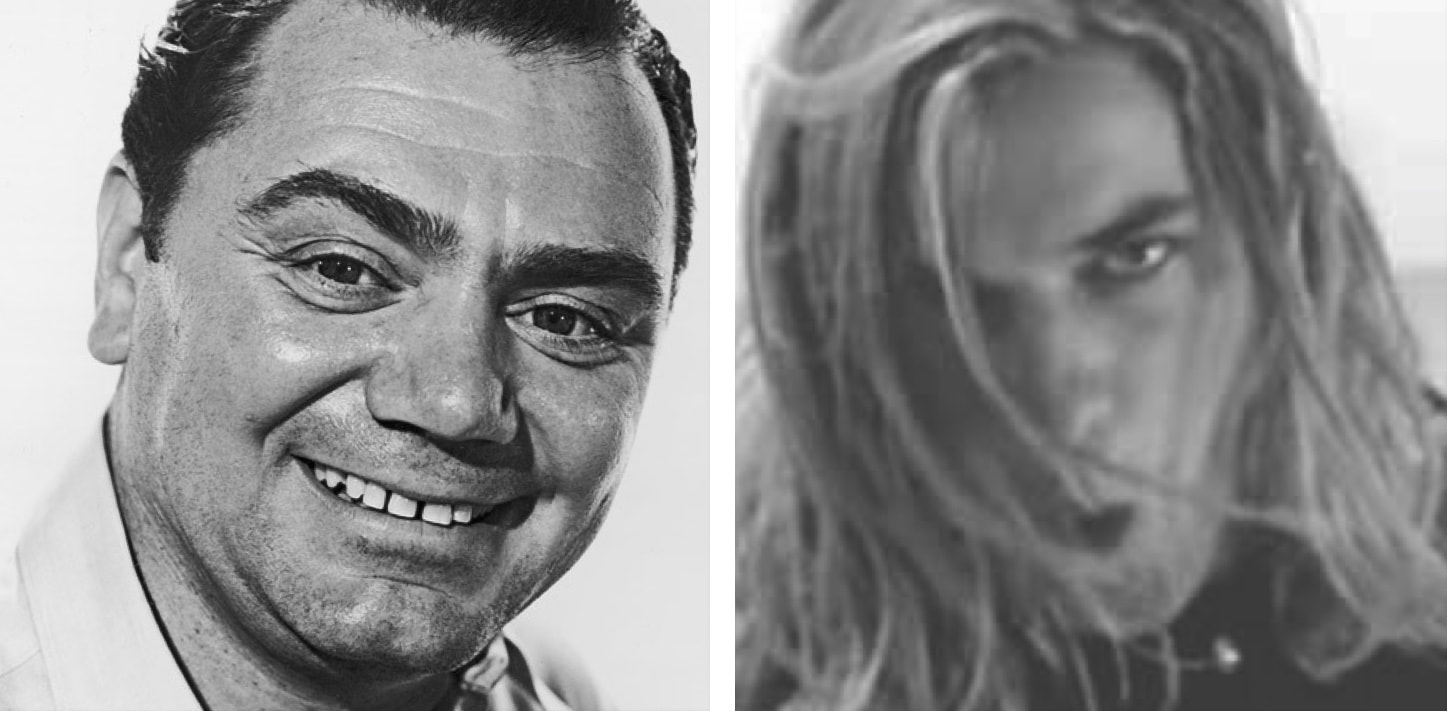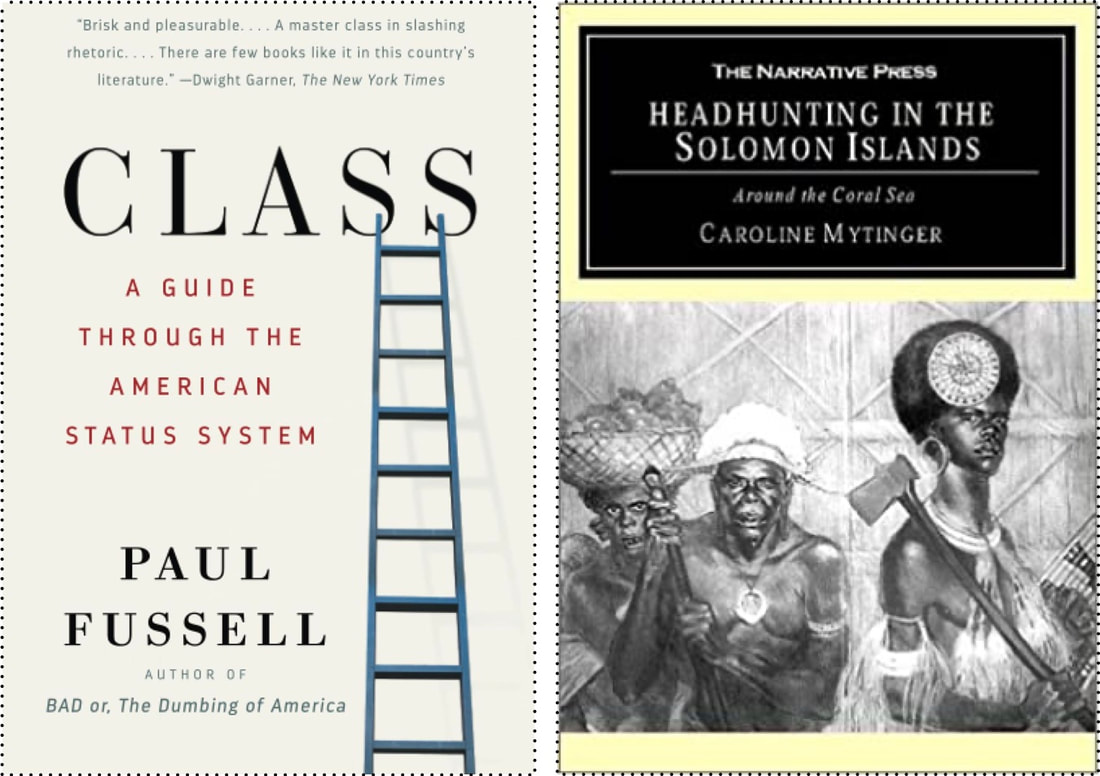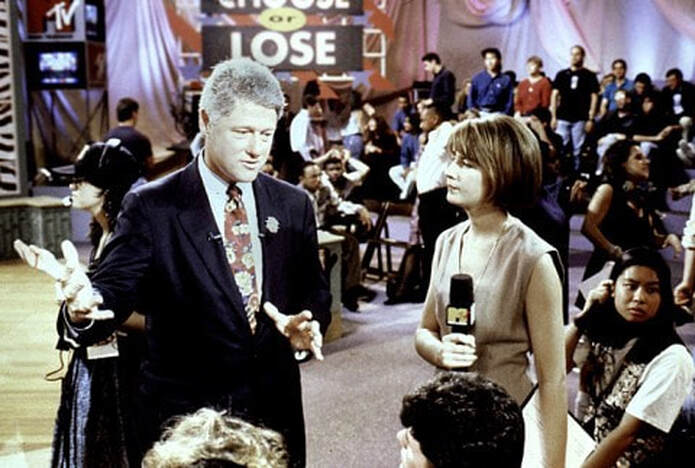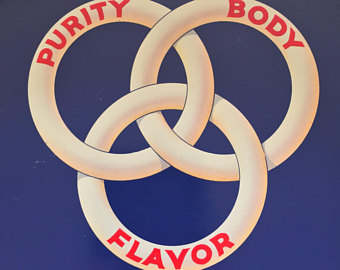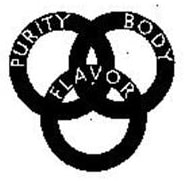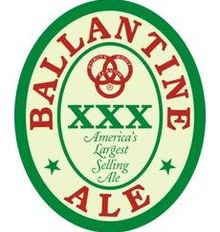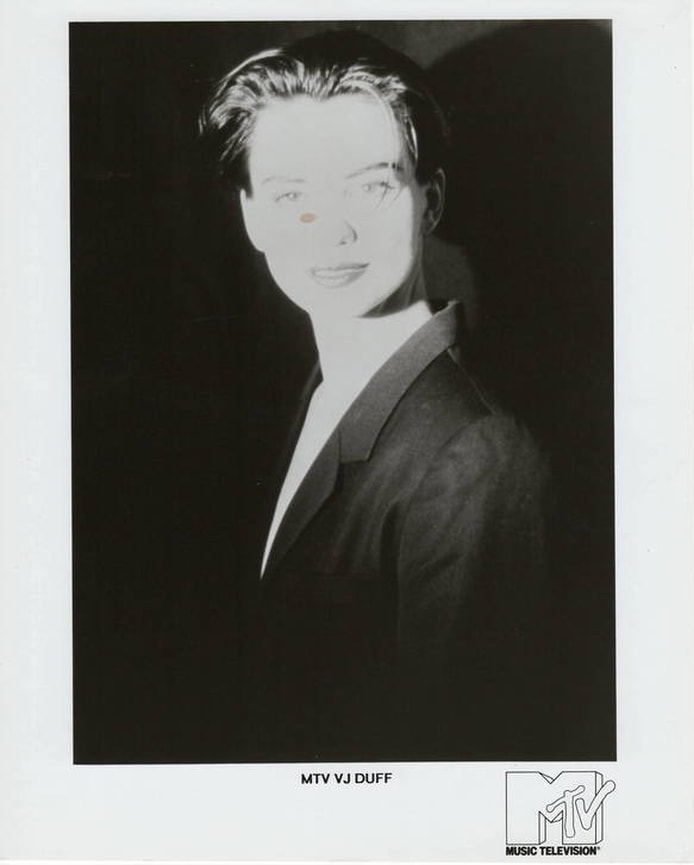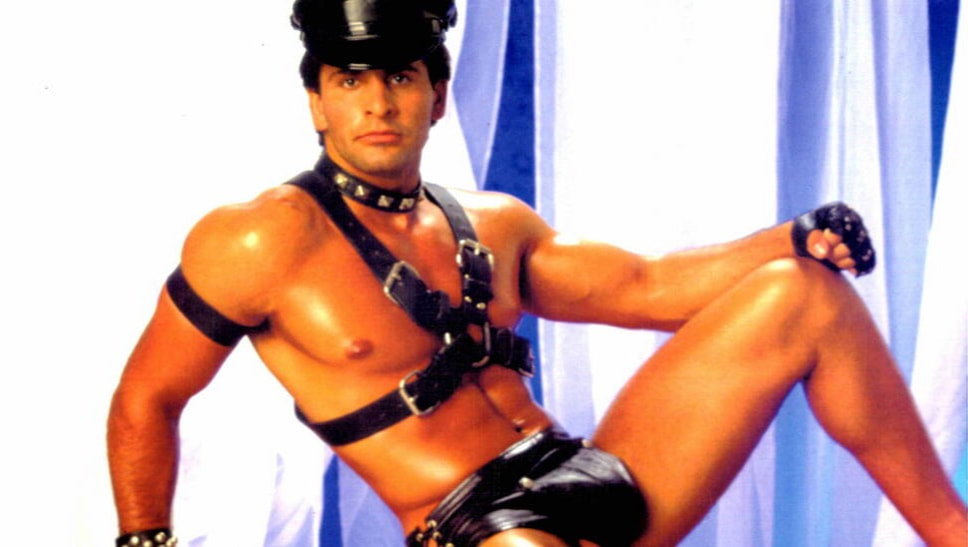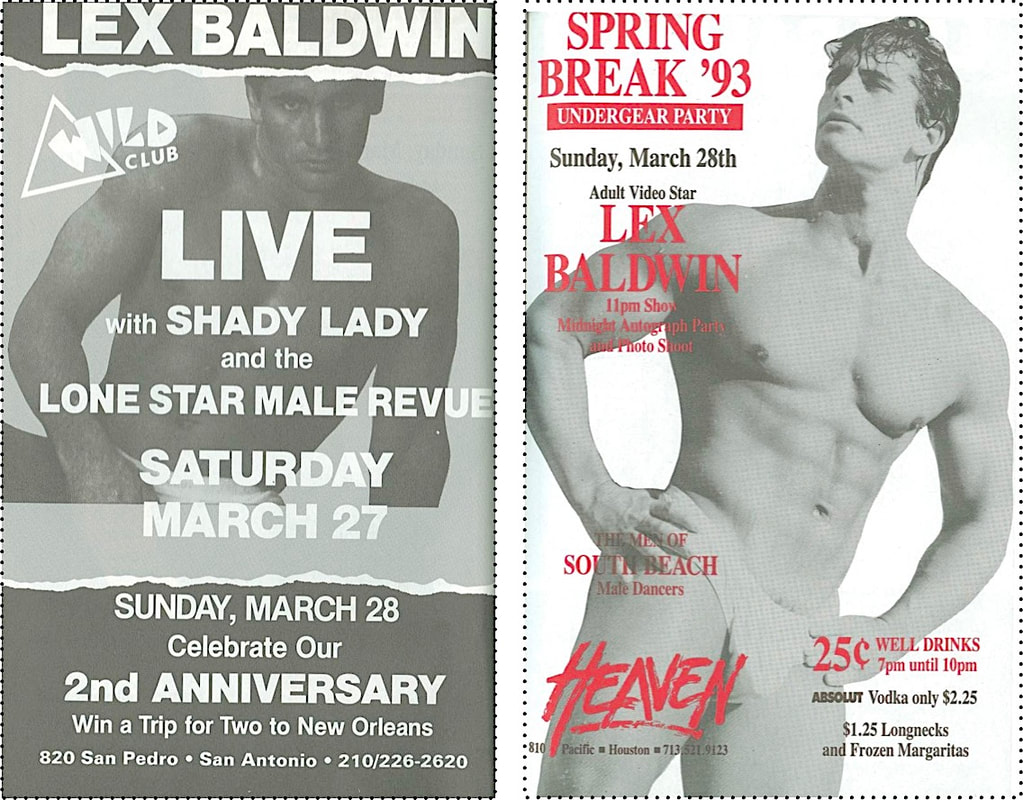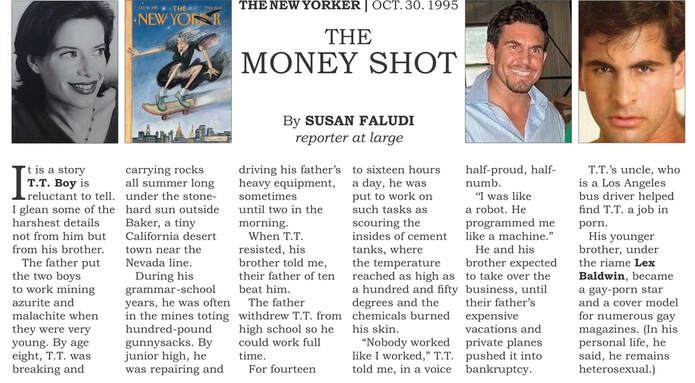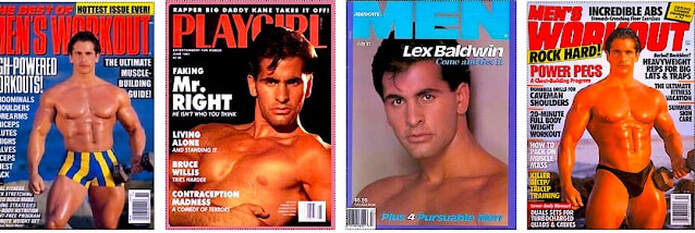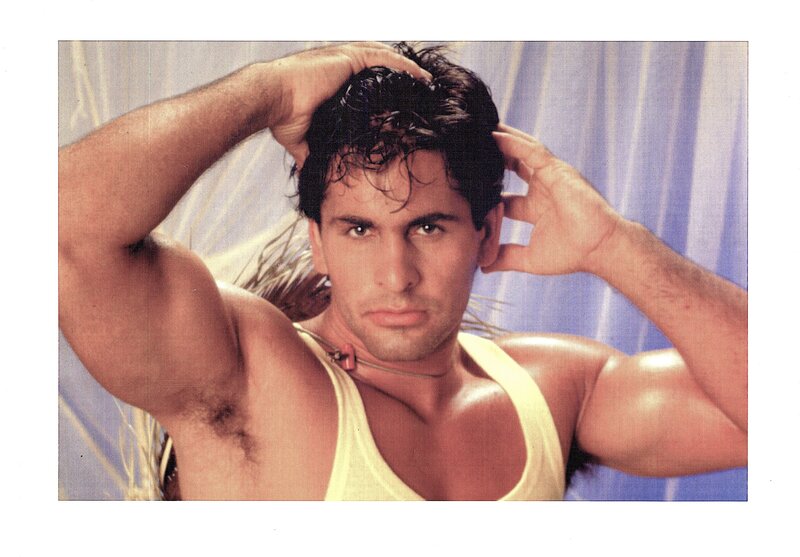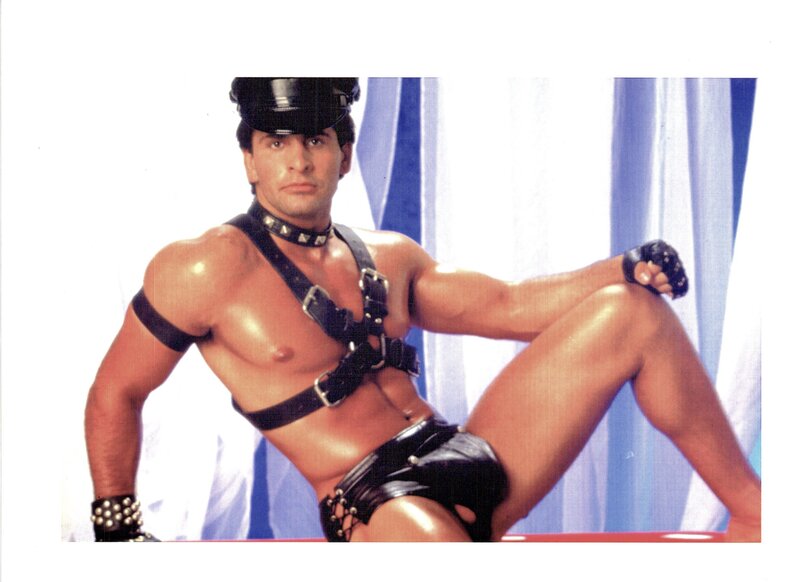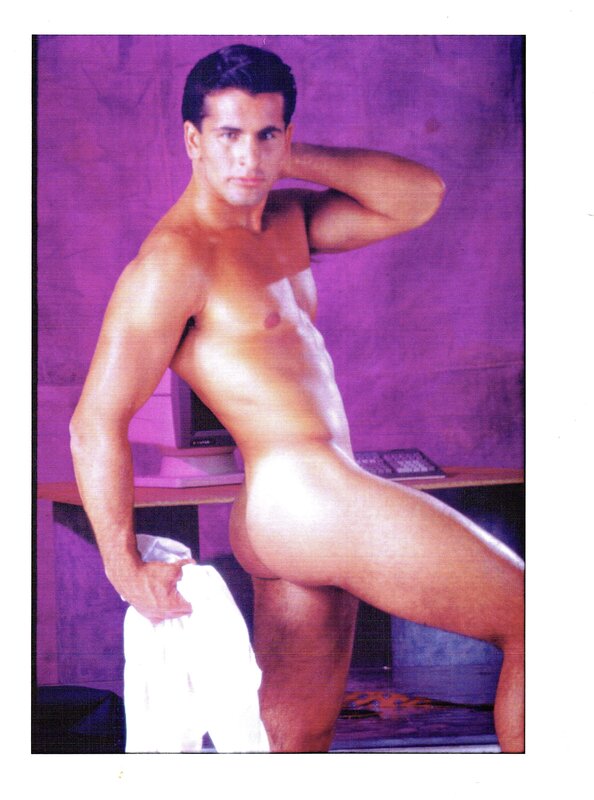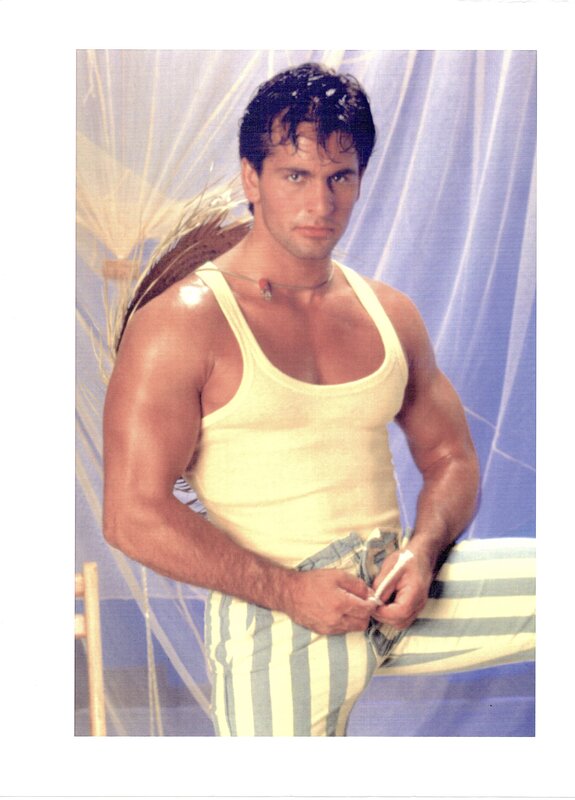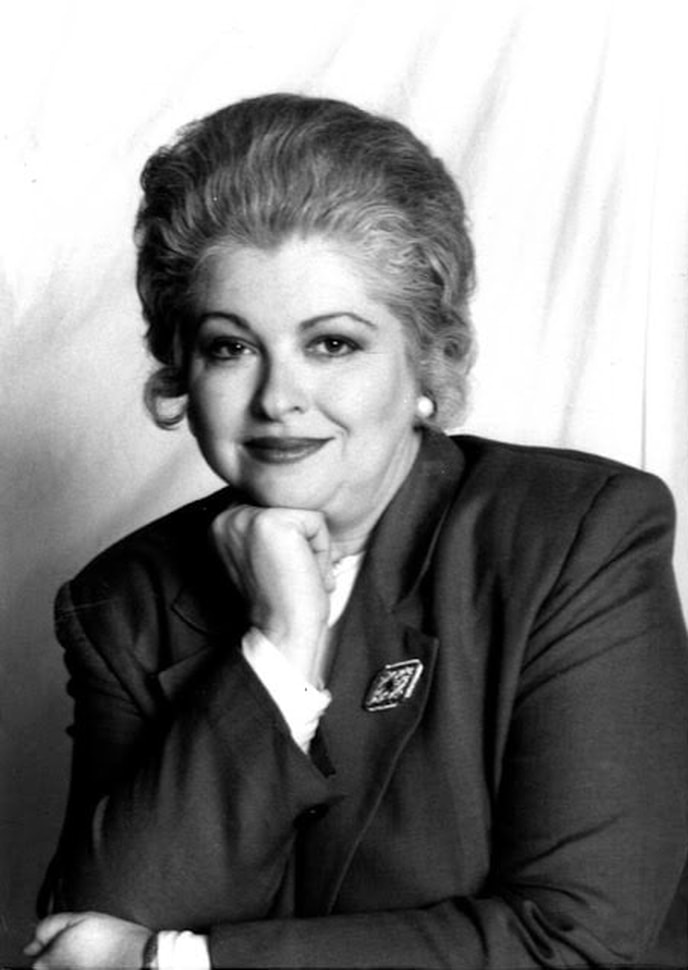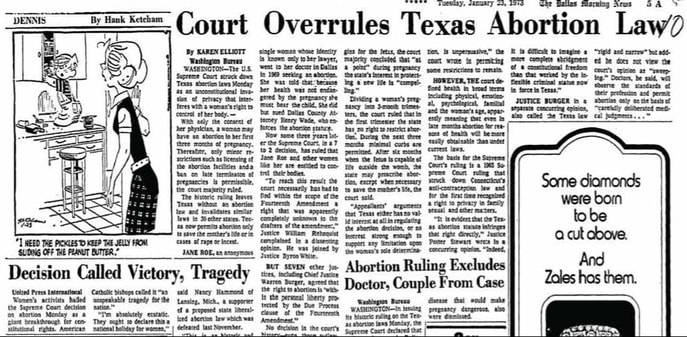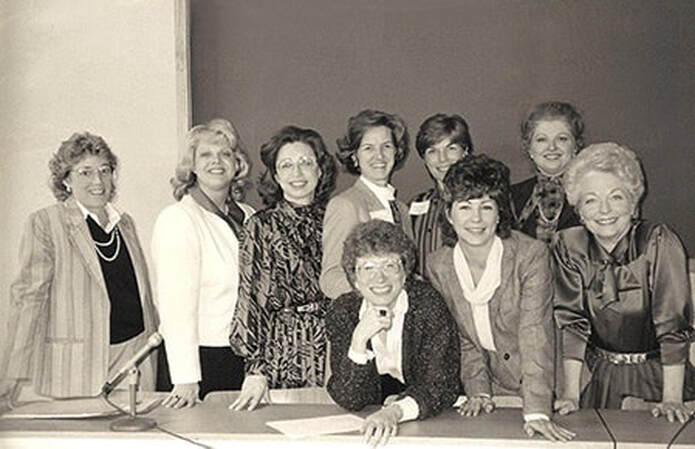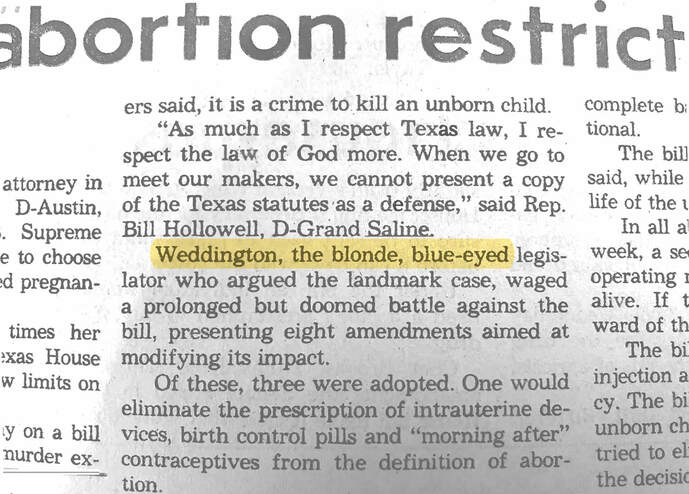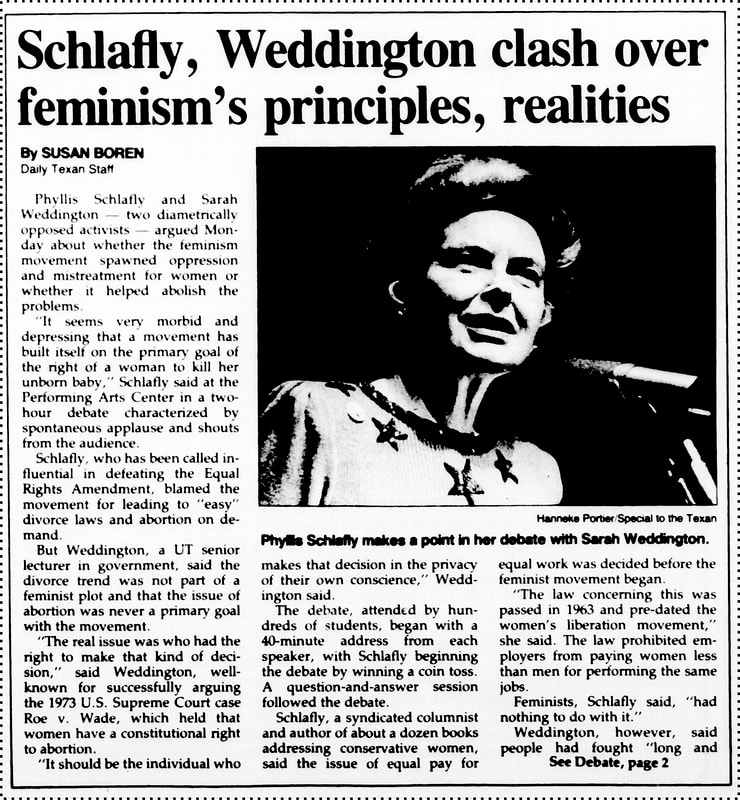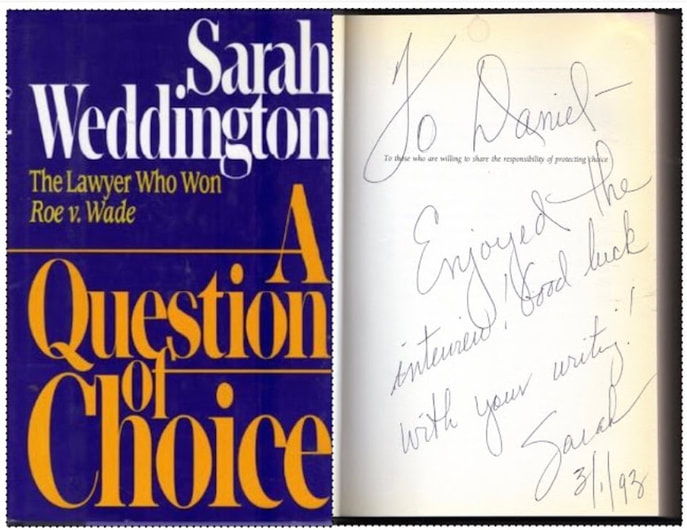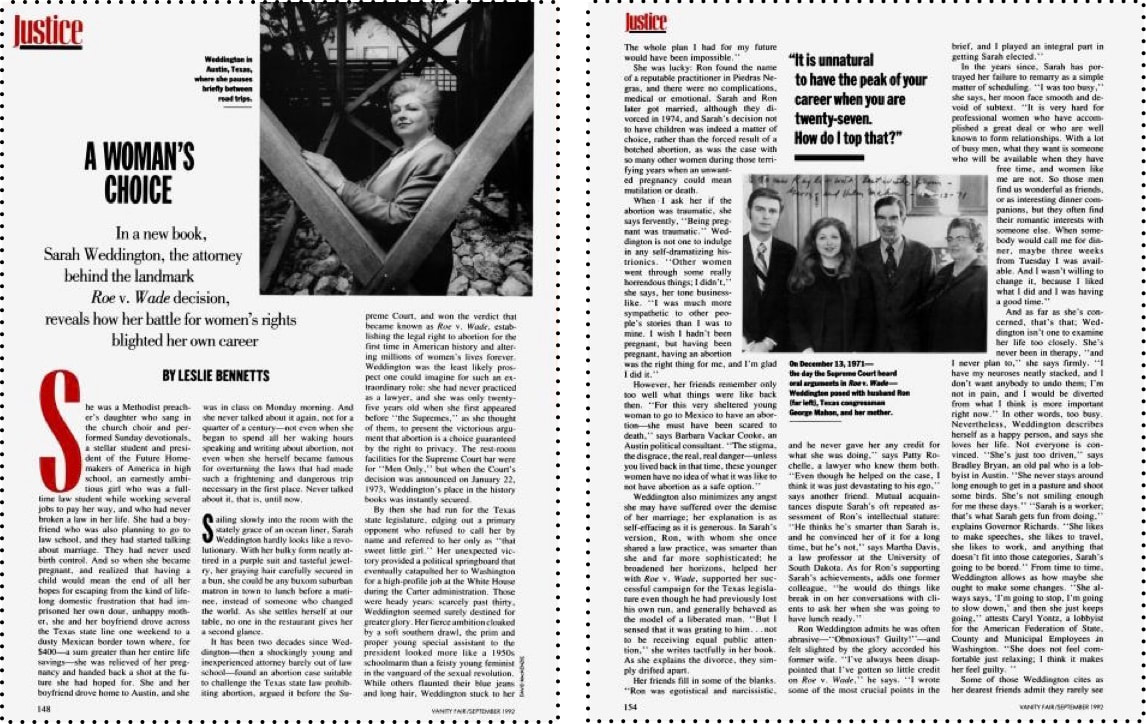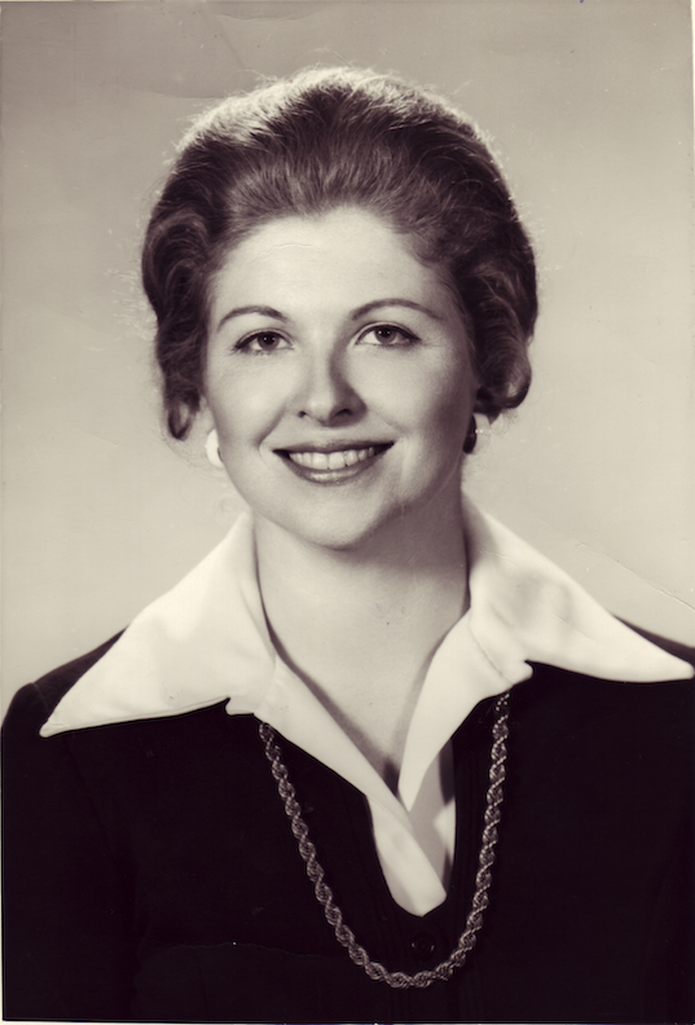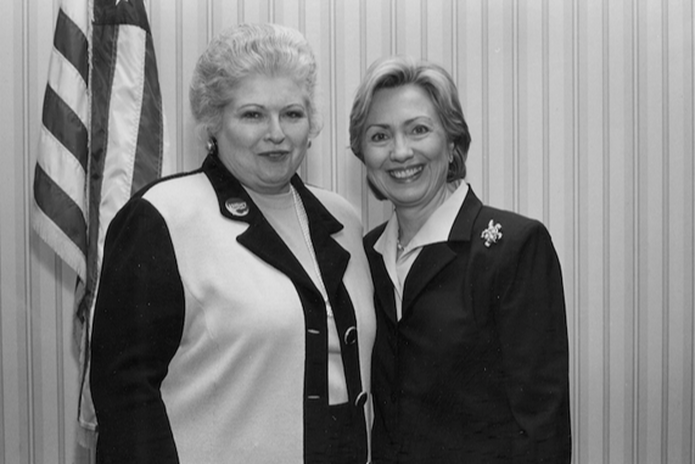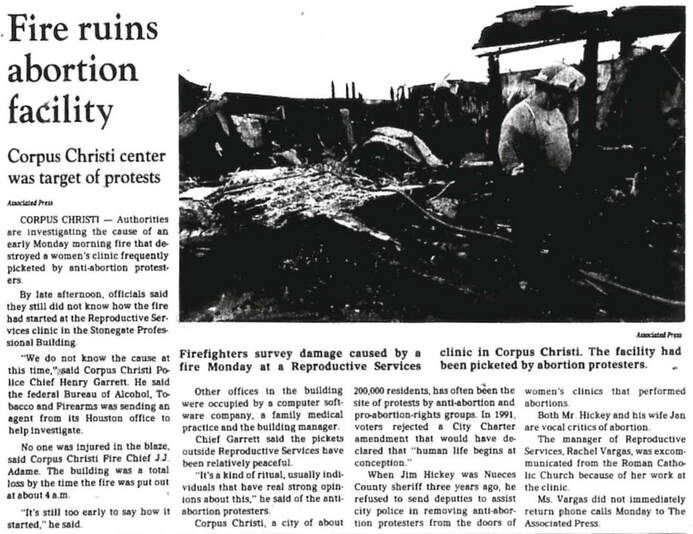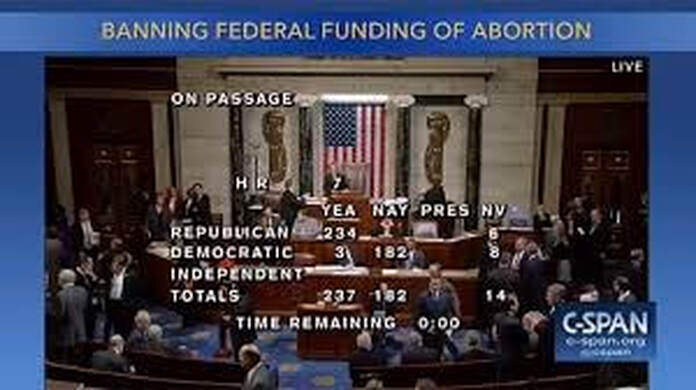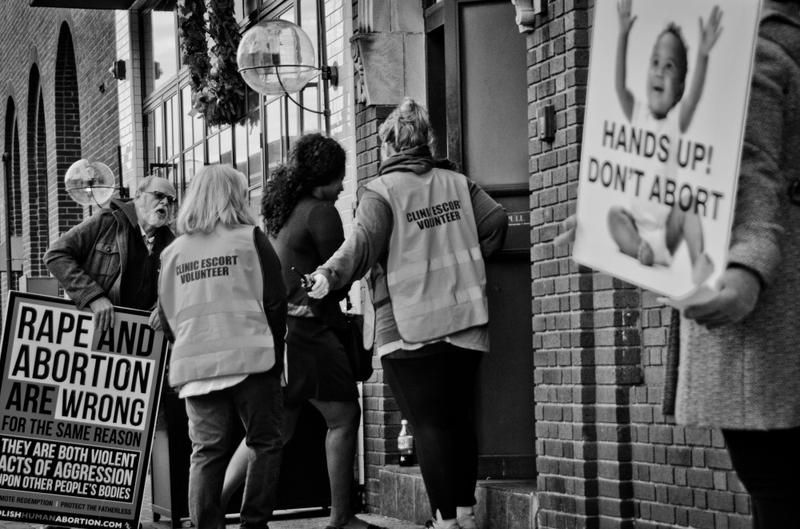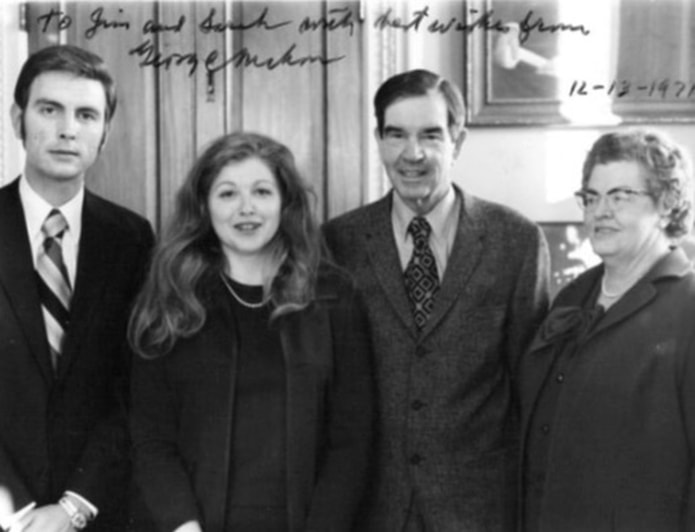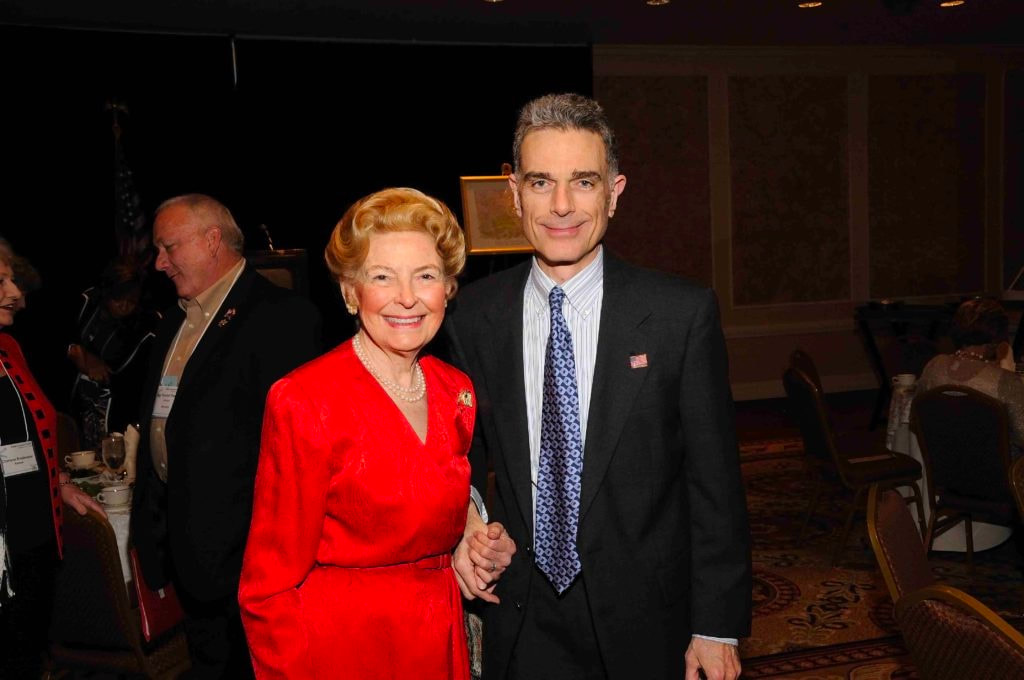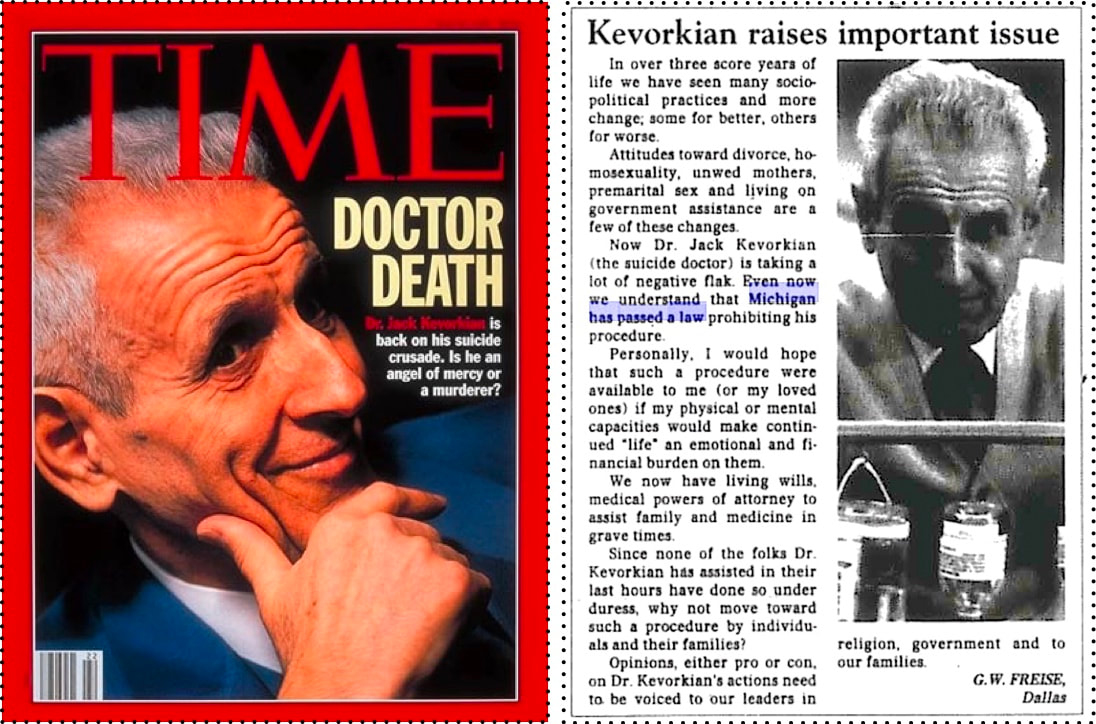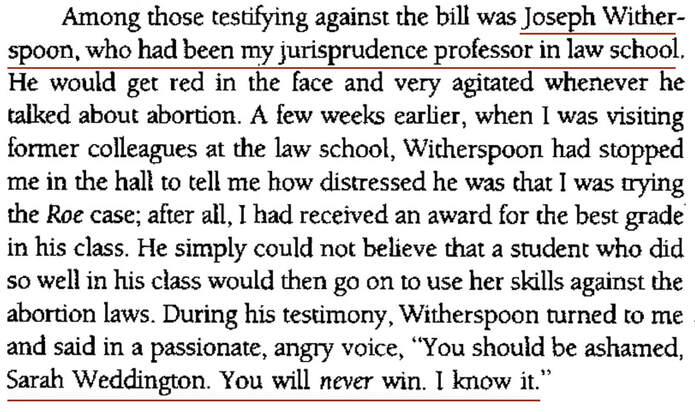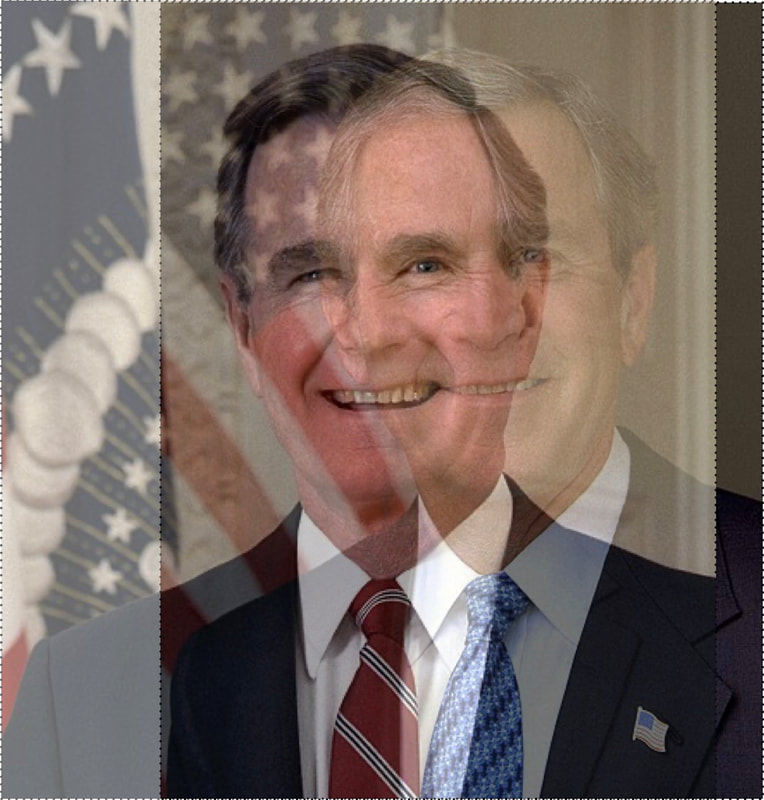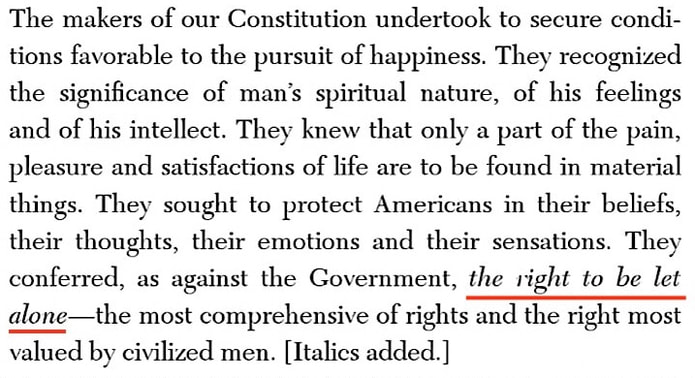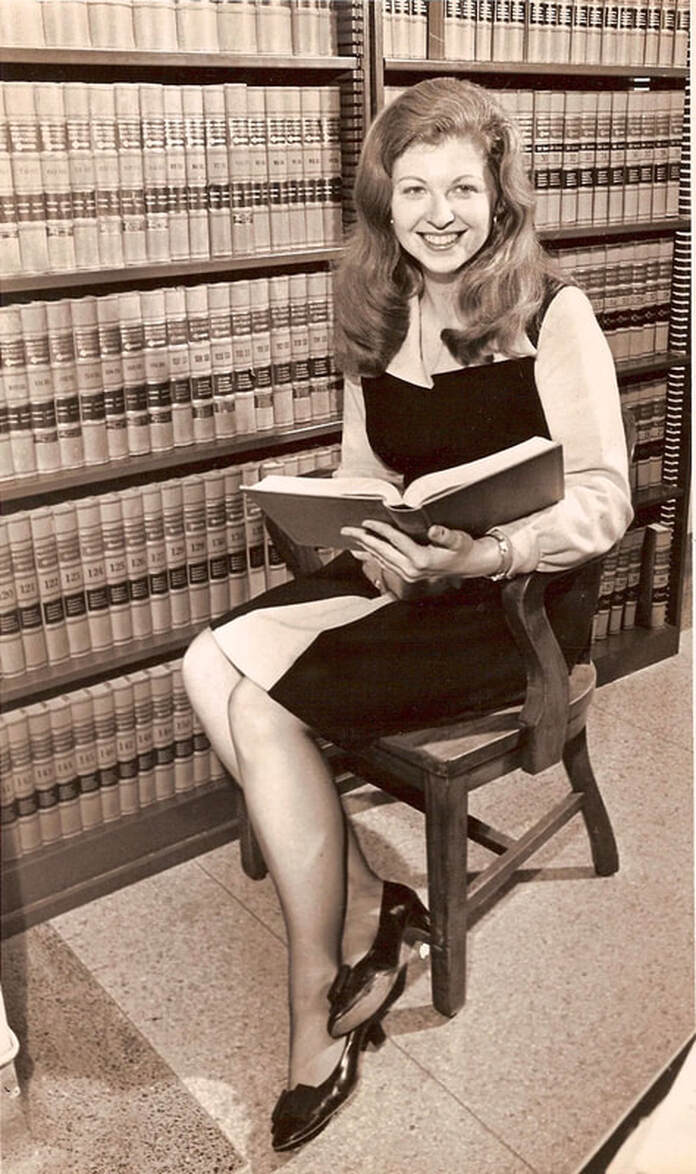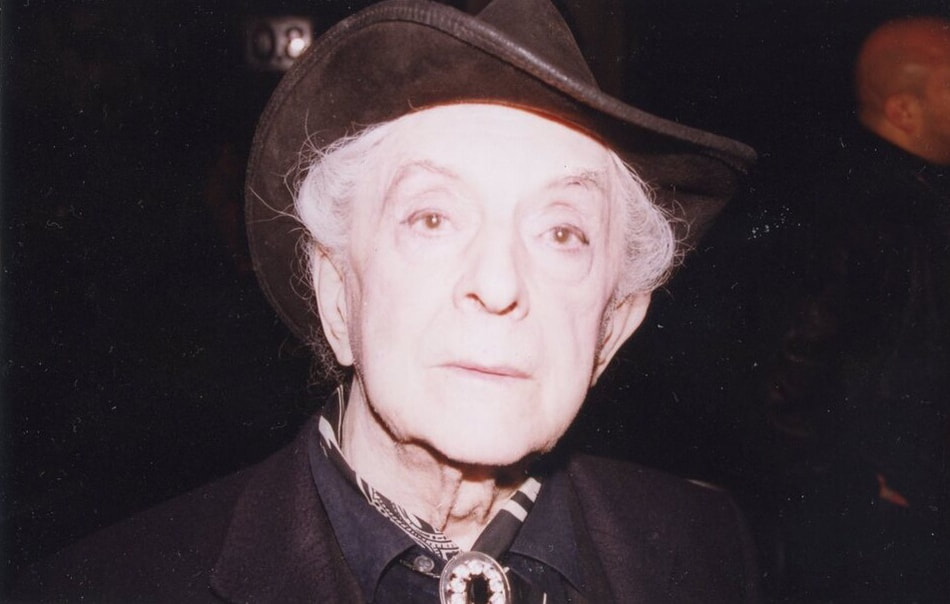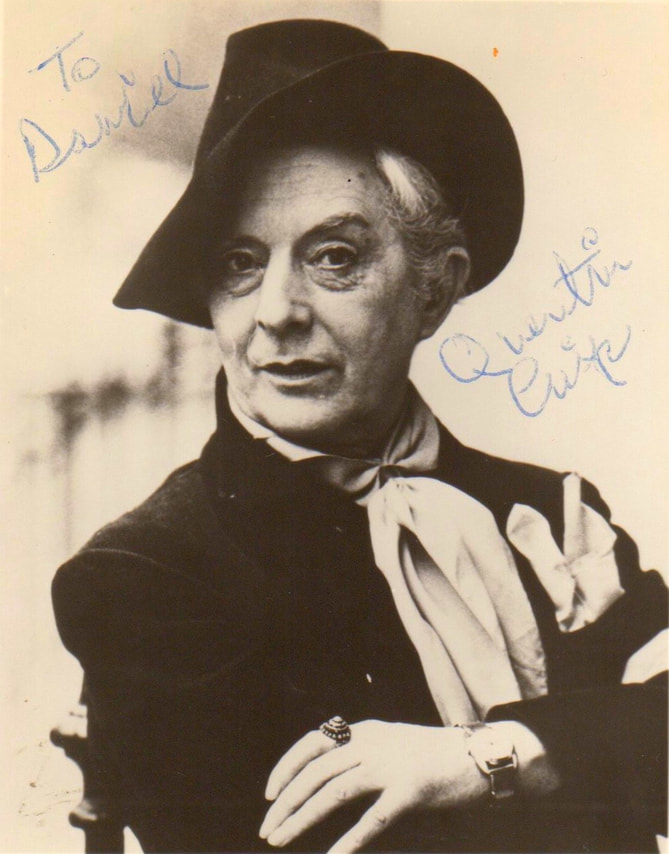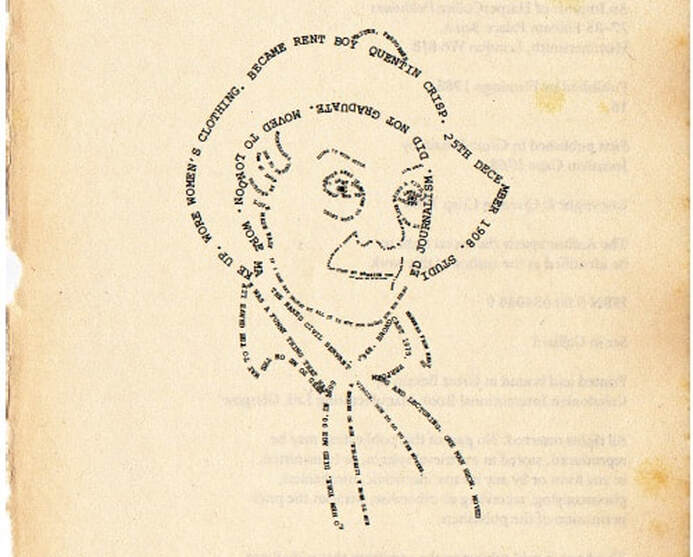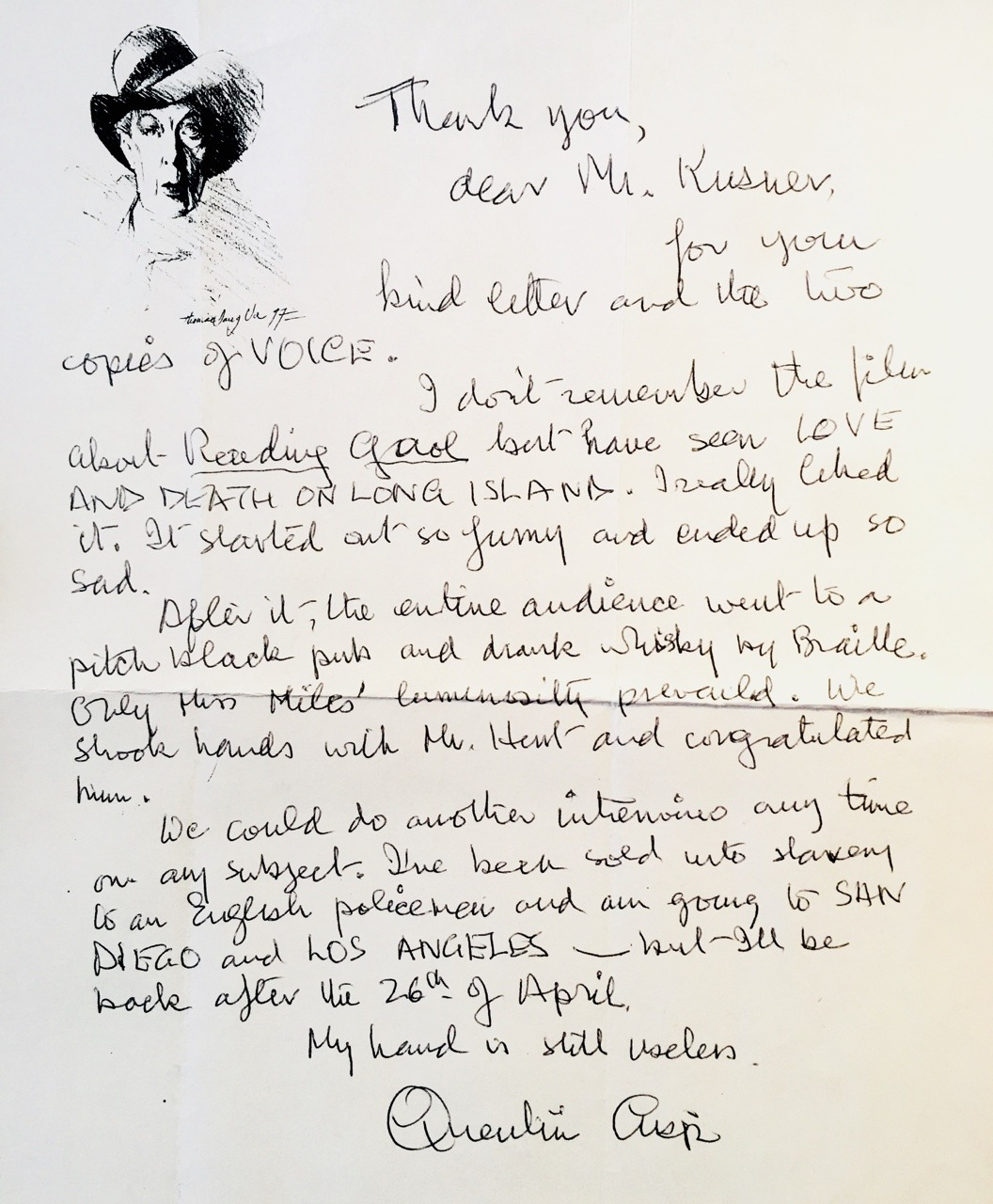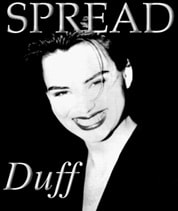|
Video jockey Karen “Duff” Duffy on... eyewitnessing Sinéad’s freaking epic ‘SNL’ gig... Woody Allen blowing up her voicemail... and dancing like a dying gangster with flailing appendages By DANIEL KUSNER | March 30, 1993 Dig, if you will, the picture... Karen “Duff” Duffy — goddess of the 30-second attention span — chills in her Manhattan apartment, which is littered with unpaid cable bills and half-read, undeserving screenplays. While a saintly image of Ernest Borgnine watches over Duff, the ravishing wisecracker says the rosary — praying that her Schwartzenegger-sized priorities remain balanced. After unpacking her suitcase, Duff installs a new idol to her collection of satanic icons. As if crucifying the messiah, she pounds a nail into her bedroom wall. Then a brief wave of regret crashes over Duff. She experiences repentance over a former decision while in Washington, D.C. That’s where Duff once sacrificed her passions to an uptight enemy. However, a smile crawls across her face... knowing that her job influenced the election of President Bill Clinton. Duff calls from her dressing room at New York’s MTV Studios. KUSNER: This morning, you were on MTV interviewing Texas’ “Ranger” — Chuck Norris. DUFF: I’ve never seen that show that I do. Really? Have you ever watched yourself on MTV? Hardly ever. Actually, I didn’t have MTV for... Come to think of it, I never had MTV. But I got a job there about a year ago. It took me another three months to get cable. Because New York is all backed up. But I didn’t pay my cable bill. So they shut it off. I think it would drive me mad to watch it. When Elvis died, where were you? Well, I was only a little kid. I was with my grandfather, who’s kinda like Thurston Howell III... I remember we were at a pool. That was like 1976-77, right? So I was just a little kid swimming at somebody’s pool. My grandfather told me. He broke the news. If you were a hooker... what kind of hooker would you be? I don’t know. That’s kind of an interesting question. I don’t think... Let’s see... I’m trying to think of a way to turn this into a “fishing” kind of answer. I’d be a hooker way out in Nantucket. What won’t you do on MTV? Kiss anybody’s butt. They’ve got this whole cheesy thing about how “The New Music Revolution Is Going To Be Televised.” That’s the biggest pile of malarkey I’ve ever heard. So I refuse to do that. And I refuse to be sycophantic. I’m always stepping on people’s toes — not that I’m intentionally being mean. But I just feel, like, “Gee... Great video. Sorry about the song.” I dunno, I’m always getting in trouble. I usually open up my evening show by saying, “MTV is a termite in the timber of integrity.” We’re always asking the question: “Will we have to wait until the day that Dolly Parton sleeps on her stomach to see an inspiring video?” Biting the hand that feeds you? Yep. Will you be on MTV forever? Nope. I mean, I feel lucky to be on MTV. I made a cheeseball $2 production of me being a veejay and sent it in. So this all happened rather suddenly. But I’ve got other things in the works. And, hey... Anybody who reads this, send in an audition tape. We really need good people. I wanna be in good company. What films have you worked on? Well, most recently, I had a cameo in “Last Action Hero,” which is a Schwarzenegger movie. I worked on “Who’s the Man?” I’ve worked on two Woody Allen films. Which ones? “Husbands and Wives” and “Alice.” Who did you play in “Alice?” I played a secretary. He shoots so many different scenes. So it’s not really anything to toot my horn about. But the fact that I’ve worked with him a few times has been great. I also worked on “29th Street.” I’ve done about half-a-dozen films. Which films have you turned down? I’ve walked away from a couple of things that really kinda cheesed women out. Right now, I’ve got a picture deal with a studio. So they’re giving me scripts. And I can kinda choose which ones I wanna do. I’m just in the process of that. So I’m really not, ya know, big enough to be turning stuff down. I haven’t really been offered that much. It’s just getting rolling now. Any plans for a singing-and-dancing career? Hell no. I’ve got Van Gogh’s ear for music — the one he chopped off. And when I dance, I look like a dying gangster with flailing appendages. No. Not at all. I don’t dance. I don’t sing. I don’t watch MTV. What’s hanging on the walls of your apartment? Nothing, right now. Because it’s being painted. But I travel all the time for MTV. So I’ve been buying art. Like really satanic, scary art. I was just in Utah for the NBA All-Star Game. And I got this really satanic oil-painting of a pumpkin. When I’m on tour with a band or whatever, I like to check out little galleries or local art. I’ve got a big picture of Ernest Borgnine because I just won an Ernest Borgnine Look-Alike Contest. My best friend and I dressed up as a two-headed Ernest Borgnine from “‘McHale’s Navy,” and we gave a dramatic recitation from his award-winning film, “Marty.” I have those pictures. Plus, gold records from my boyfriend [Whitfield Crane, singer of Ugly Kid Joe] because he doesn’t have a house. What do you mean when you say “satanic art?” Scary-looking. Really primitive. Mark Kostabi — the artist — he made me two beautiful paintings because I interviewed him, which was awesome. The best thing about MTV is the swag you accumulate. And Kostabi makes these original paintings while you’re talking, and then he flips them over. I buy a lot of quirky, thrift-store art. What are you reading? This book by Paul Fussell called “Class.” Also “Head Hunting In the Solomon Islands Around the Coral Sea,” by Caroline Mytinger. She’s a physical anthropologist. As an Irish Catholic, what did you think of Sinéad O’Connor ripping up the pope’s picture on “Saturday Night Live?” I was there! I was there — in the audience. And it rocked my world. I gotta tell you... When she ripped-up the picture of Pope John Paul II, she was freaking. It wasn’t like she did it with a whole lot of conviction. She was trembling. And everyone just shut the hell up. No one laughed for the rest of the night. Then after every “Saturday Night Live,” there’s big hootenanny at some big bar. And it was so down. On Sunday, I felt really bummed. It really hurt me. All day long... I just could’t forget what had happened. It rocked my world. The next week, I was at the Bob Dylan tribute where she got booed. So that thing has had a lingering effect. 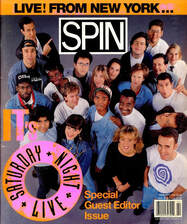 SPIN-OFF: February, ’93. SPIN-OFF: February, ’93. I'm glad Sinéad did it. For a bunch of reasons. She has a different perspective as a Catholic from Ireland. But that whole night just crashed. Everybody was freaked. Do you remember when the cast from “Saturday Night Live” edited that issue of SPIN? Yeah. SNL’s cast members said Sinéad surprised them. Wouldn’t you sort of expect that from Sinéad? She’s so outspoken. And when “SNL” re-aired the episode, they showed Sinéad’s taped rehearsal instead of what was broadcast. Ripping up the pope’s photo is the third most-remembered moment in TV history. Right next to Jack Ruby assassinating Lee Harvey Oswald and Crispin Glover trying to kick David Letterman in the head. But I could understand it bringing the whole evening down. It did. You didn’t expect it at all. The way she did it, she was freaking and trembling. And her voice was quivering. You know how it is when you’re rude to somebody and you don’t really mean it? That feeling that you’re like... “Oh, my god...” That was what it was like. Do you still go to church? Yep. How often? I’d say every Sunday. And I usually try to go once or twice mid-week. Wow, dedicated. I try. I try to say the rosary every day too. I also have my little novenas and candles. I visit a nursing home three times a week — so it’s a big Catholic thing I’m lugging around. If you won the lottery, would you quit working? I’d quit MTV. But I can’t ’cuz I’m under contract. No, I wouldn’t quit. Before I was working MTV, I was working at a nursing home. I didn’t have any money. And now, 10 movies, 30 commercials, a TV pilot and a movie deal... My bank account is a lot fatter. But nothing else has changed. I’d definitely keep working. Because you’d just fall apart. You gotta keep yourself inspired. I would’t necessarily punch a clock. But I would definitely be developing projects. Name three good music videos. Faith No More’s “I’m Easy,” Guns N’ Roses’ “Garden of Eden.” Boy... You asked for three? I didn’t mind Green Jello’s “Three Little Pigs” — the song sucks. But the video’s cool. Actually, I liked Ugly Kid Joe’s new one, “Busy Bee.” What effect did you think MTV had on the ’92 presidential election? We had to grovel. But MTV got younger voters to the polls. Only because they were guilted into it. I hope those voters thought about issues rather than experiencing a knee-jerk reaction to “Choose or Lose! Choose or Lose! Choose or Lose!” Tabitha Soren did a great job by having President Clinton on MTV... as well as Ross Perot. It opened people’s eyes. At the inauguration, President Clinton said thank you to MTV — that without MTV, he didn’t think he’d win. Last week, I was in Washington at a big, hoity-toity Horatio Alger event that I co-hosted with Maya Angelou. I met Ross Perot, Gerald Ford and even Jack Kemp. All of them told me, “I wanna be on MTV.” So people are certainly paying attention. What’s one of your biggest mistakes? God... There are a million of them. After I graduated from the University of Colorado, I lived in Washington, D.C., for a year-and-a-half. It was the worst year-and-a-half of my life. Stay away from D.C. It was too conservative. If you have any amount of passion, they think you’re crazy. It was a miserable time. I regret that. Name three of your favorite celebrities? Tom Jones, Frank Sinatra and Ernest Borgnine From your wealth of experiences, what advice can you share? My dad gave me some good advice. He said, “Life is like the three rings of a Ballantine Ale can. One ring represents your family and friends. One ring represents your spiritual life. And one represents your professional life. You should keep all rings the same size so you’ll stay a balanced person. If you focus too much on your career, or your boyfriend, or blind religious abandon... Then... boom! You gotta focus equally — on each one.”
0 Comments
While stripping in San Antonio, safer-sex porn stud Lex Baldwin explains his admiration for Queensryche, Bill Clinton and Ted Turner By DANIEL KUSNER | March 28, 1993 In the 1990s, gay porn was invaluable. When AIDS was in full-blown holocaust mode, VHS technology placed erotica in the privacy of one’s own home. Porn safely relieved pent-up stress when dudes were terrified of hooking up with other dudes. But it also vividly celebrated same-sex love. And those elements translated into big-business. The payoff was that studios could afford to transform beefcake studs like Lex Baldwin into supernovas. On March 27, 1993, Lex and I met at a San Antonio nightclub where he drew a crush of fans. Lex didn’t disappoint. The six-foot burlesque hunk hit the stage in a leather mask and black cape. Crotch-thrusting to Prince’s churning-funk classic “Get Off,” Lex slowly peeled off garments until his herculean physique was clad in only a G-string. Lex was surprisingly friendly toward frisky fans who worshipped him with thong dollars. For his denouement, Lex covered his waist with a white towel, and his G-string magically vanished. Then the towel kept clumsily falling from his waist. We met backstage where Lex agreed to an interview and told me to call his hotel the following morning. (He even gave me his room number.) Lex isn’t much of a talker. But speaking with him illuminated a salient point: The strands of sexuality can be woven into complex patterns. And even gay-for-pay porn stars can be progressive members of the queer community. Two years after Lex and I met in Texas, The New Yorker assigned Pulitzer-winning feminist Susan Faludi to cover the “Boggie Nights” side of the industry — men. Faludi interviewed Lex. And The New Yorker’s fact checkers discovered a porn plot that contained a “Baldwin Brothers” reference. Lex’s biological brother was T.T. Boy — a legit, jackhammering stud in the straight biz. This brief conversation captures Lex in his prime — before he radically transformed his distinctive nose and went by the names Eric Conte, Keith Rivera, Talon and Dillon Boy. KUSNER: Did you start your career by dancing in nightclubs? LEX: Before I did movies, I danced at a West Hollywood gay club called Studio One. I wanted to see if I liked the scene. Just to check it out a few times. How old are you? 23. Where’d you grow up? In the desert. Just say Los Angeles because I was born in L.A. Do your parents and family know about your career? No. What were you like in high school? A troublemaker. I was obnoxious and got expelled for fighting. School bored me. In class, I couldn’t control myself. I’d just go crazy. What was the last album you bought? Queensryche’s “Empire.” I like rock. If you weren’t in porn, what other line of work would you pursue? Gym business. Fitness. Do you consider yourself gay? I don’t like titles. I like whatever feels good. Do you have a partner? Nope. How competitive is your line of work? For me? I’m not trying to compete against anybody. Is it tough getting work for the kind of money you want? I haven’t done many movies. And my manager helps me negotiate pay. Anyway, I haven’t done a movie in about a year. But my last one was just released. Are you gonna be doing any more? I’m not sure. What are your thoughts about people — like, feminist activists — who protest porn? They have the right to say whatever they want to say — freedom of speech. I don’t have nothing against them. Everybody’s gotta put in their two cents. Who do you admire? Ted Turner. Because he’s a billionaire. I like the diversity of his business interests. What are porn scripts like? They’re stupid. Filled with little cheesy stuff you have to say. The scenes are stupid. One movie I did had a decent script. They had it written up because it was a higher-budget movie. Scripts aren’t a big deal. Are you glad President Clinton is in office? I’m not into politics. I’m glad Clinton is in office for the gays... Ya know — the gay community. Because he can help the economy and everything. And that’ll help me. How is safe sex handled in the industry?
I work for Catalina. They don’t mess around. They only promote safe sex. You don’t have a choice. Other companies risk practicing unsafe sex. What won’t you do in your films? I won’t get fucked, and I won’t suck dick. Do you have any hobbies? I like waterskiing and riding bikes. How often do you work out? About four days a week? Do you see this career as a stepping stone? I do. Toward what? It’s a good way to meet very interesting people. Do fans hassle you in your private life? Yeah. Sometimes they bother me. Do you watch your own movies? Naah. Ever? No. If you were to die tomorrow, what would you do today? Umm... [Laughs.] Fuck 10 girls? Awww, I’m joking. I don’t know. I guess spend time with my family. Whoever’s important to me. Pro-choice SCOTUS lawyer, Austin autobiographer Sarah Weddington warns of Roe v Wade’s future miscarriage and extremists’ criminalization of our right to privacy By DANIEL KUSNER | March 1, 1993. 7 p.m. When Sarah Weddington was 27 years old, the Texas lawyer longed for women having more options — like opening a checking account that didn’t require her husband’s signature. On Jan. 22, 1973, she emerged as one of the 20th century’s most influential leaders when the Supreme Court voted 7-2 in favor of the case Weddington argued: Roe v Wade. By the time of her landmark SCOTUS win, Weddington was the first woman to represent Austin-Travis County in the Texas Legislature — where she continued to advocate for personal decisions without government interference. She also provided Ann Richards’ entrée into Texas politics when Weddington hired Richards as a legislative aide. However, in the political arena, the Texas champ still faced weirder-than-Austin opposition just because Weddington was female. In 1992, privacy rights began unraveling when the Supreme Court decided Planned Parenthood v Casey. The Casey decision involved a Pennsylvania statue that required doctors to inform patients about fetal development and abortion alternatives, thereby influencing pregnancies to continue. Casey also required a 24-hour waiting period between the session with the doctor and the abortion procedure, as well as requiring married wives’ husbands to sign forms stating that she’d notified him of her desire for an abortion. In Austin, at the University of Texas, arguing the Pro-Choice v Pro-Life debate was a Longhorn tradition. For almost 30 years, Weddington was a UT professor. And like an annual boxing match, she faced off against The Eagle Forum’s Phyllis Schlafly. An overpowered moderator attempted to maintain decorum — like on Oct. 20, 1992, when I caught the scintillating Weddington v Schlafly showdown inside Bass Concert Hall. In 1993 — 20 years after the Roe decision — Weddington and I crossed paths in Austin. Our platonic meet-cute was just after the publication of Weddington’s memoir, “A Question of Choice,” (Grosset & Putnam, Sept. 16, 1992) 306 pp., $21.95. On an early Monday evening, Sarah invited me to her office for the first in-person interview I ever conducted. Less than two weeks after our appointment, one of Pensacola, Fla.’s few abortion practitioners was assassinated when Dr. David Gunn was shot in the back three times by pro-life crusader Michael Griffin. INTERVIEW TRANSCRIPT 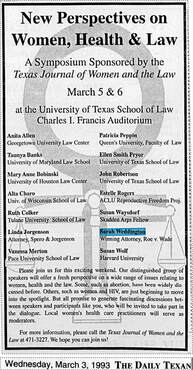 KUSNER: This weekend, you’re speaking at the University of Texas at Austin. What will you address? WEDDINGTON: I’ll be speaking at the Law School’s women’s conference. And, particularly, I’ll be looking at reproductive issues. I’ll be doing a combination of looking back at the beginning of the case Roe v Wade here in Austin — the people who were involved in beginning it. What it was like to try a case in the U.S. Supreme Court. Especially as a very young woman attorney. The legal issues we worked with then. What has happened in the intervening 20 years — because the 20th anniversary of Roe was Jan. 22 — and why we came so close to losing it. Then I’ll be looking at issues of the future. I think that Jan. 22 is a day that lives — not only as a remembrance of 20 years ago. But now, with the Clinton administration and its pronouncements, as a real signal of a 180-degree turn. And hope that things will be a lot different under Clinton than Reagan and Bush. So my topic is “Looking Back and Looking Forward: Roe v Wade Turns 20.”  THE SUPREMES: Circa, ’92. THE SUPREMES: Circa, ’92. In a recent Vanity Fair profile, you said if you argued Roe v Wade today, you couldn’t win. Why? Because of the change in the makeup of the Court. Two judges say Roe v Wade is good law — let’s leave it alone. Those are Blackmun, who’s the oldest, and Stevens, who’s the third oldest. There are four judges who say Roe v Wade was wrong, let’s get rid of it. Those are White and Rehnquist, who voted against it. They were the two in the 7-2 vote. There’s Scalia — who’s made it very clear he wants to overturn Roe — and Clarence Thomas. Three judges are in the middle: O’Connor, Souter and Kennedy. Those judges said, “We’re not willing to overturn Roe v Wade.” They talked in part that Roe has existed for so many years. As if to say, and if it hadn’t existed all those years, then maybe we’d overturn it. But they said that Americans had come to rely on this right. They thought it would not be wise if the Court were to make so dramatic a change — unless the people opposed to Roe had shown why they had to. But I don’t think we would’ve won those three votes. And if only one of them joined the Rehnquist faction, that would be five to say there either should be no Roe v Wade — or [they] would overturn it. So that’s why I don’t think I could win it now. There just aren’t the votes on the Supreme Court that I would need. Because I’d have to have at least five. Where you do you get your hair done? [Laughs.] I do it at home. A woman named Suzy cuts it about once every four-to-five months. But basically, I don’t have time during the day to do that. Now that Clinton is president, what should the pro-choice movement concentrate on? Well, I think there are two main parts to it. One is, I think the abortion issue has been like a see-saw. In ’73, the pro-choice people were really organized, really effective. And so we began to win — and did win — Roe v Wade. When we won, we said, “Okay. We’ve done that. Let’s go on to other issues.” So we began to work on rape reform, credit reform... Women teachers could be fired just because they were pregnant. In Washington, D.C., I worked on opportunities for women in the military, domestic violence and appointment for women to the top. But, essentially, we never worked for abortion. We were always for women having more options. So we went on to work on all those other options. When we did, those who were opposed to abortion started really organizing. They were successful in electing, first, Reagan, and then Bush. One of the things that really worries me is — I’m afraid there will be a tendency for all the people who got really organized and cause the pro-choice people to be on the top part of that see-saw... I’m afraid people will now say, “Oh, we’ve done that. We don’t have to worry any more.” The opposition is obviously starting to organize. The first thing that worries me is that sense of apathy that I’m afraid will happen. Because, second — there are two parts to the challenges.... One — true access to services. If you have a Roe v Wade, and it says, “Abortion will be legal, but you don’t have access to services,” then it’s a legal theory. But it isn’t real in the lives of women. Access is having a clinic to go to. Two weeks ago on Sunday, the Corpus Christi clinic was bombed and burned to the ground. It was the only clinic in Corpus that had sliding-fee scales so that poorer women could pay less. Part of it is the violence aimed at the clinics. And the other part of it are the kinds of restrictions we are beginning to see. For example, the Supreme Court now says that the states can restrict women’s access in the sense of time limits and other things. So I’m worried about those kinds of restrictions being passed. Now what’s happening... One, the appointments Clinton is making. For example, Joycelyn Elders — who will be Surgeon General in the summer — has said, “There’s no real freedom until there is also reproductive freedom.” So I think he’s appointing good people to a variety of positions — people who are pro-choice. If there were any more vacancies on the Supreme Court, he’d nominate a pro-choice candidate. So I don’t think we’re gonna have Roe overturned in the next four years. It is the weakening of accesses that I’m really concerned about. There’s a bill in Congress called The Freedom of Choice Act. That bill is one that would say, “We’re gonna reinstitute Roe v Wade only as congressional law — not as a Supreme Court interpretation.” I think we have the votes to pass it. I’m very worried about the amendment that might be adopted, which could also weaken Roe. There’s another bill called The Reproductive Health Equity Act. What happened was, right after Roe, the federal government paid for abortions for those people for whom it otherwise paid to continue pregnancy. So people like military, military dependents, Medicaid recipients, Peace Corps workers — if they were brought to a clinic, they could choose... And the government would pay for them to continue the pregnancy. Or pay to terminate it. So The Reproductive Health Equity Act would go back to saying: “The woman gets the choice.” Another bill would deal with clinic violence, which would make it a federal penalty for people to bomb an abortion clinic or try to close it. There are a number of things that are happening in the sense of legislation. And others have to do with funding. For example, we’d really like to see more money coming into budgets for coming up with new and better methods of birth control. More for dissemination of birth control. More programs to help suggest teenagers avoid pregnancy. There’s a whole series of things left to be done. Last year was such a time of high anxiety for me. I thought that Bush would be re-elected. You gotta look back at the beginning of 1992... I thought he would make another appointment to the Supreme Court. Because Blackmun — who is our friend — and who helped write Roe had said, “I can’t last forever.” So I thought that Bush would get to appoint. And that would be the fifth vote against us. I was trying to write my first book [“A Question of Choice”] which is a history of the Roe v Wade case. And I was frantic. Now I feel much more relaxed. I smile more. And am happier. The world looks rosier because Bill Clinton is president. And the things of Jan. 22 are a signal to a nation and the world. And a new day has begun for reproductive rights. Does Clinton’s health plan include subsidized abortions? At this point, no one knows what his health plan includes. All they’ll say is: They’re working on it. I hope in the testimony... that it will include comprehensive reproductive care. So that there would be health services available to prevent pregnancy. For termination, if you are eligible for federal services. For continuing the pregnancy, if you choose. For prenatal care. For early childhood care. That it would really be a comprehensive-reproductive package. Who do you think would be a wise Supreme Court Justice appointment? I don’t know the answer to that. The names I’ve heard most frequently include, Walter Dellinger, who’s from Duke University, who’s a constitutional law-expert and moved to Washington to help with the administration and who’s very pro-choice. There are a number of women: Pat Wald, who’s on the D.C. circuit and turned down the attorney general spot in hopes that she might be in line for consideration. There are a number of really outstanding people who’ve had no opportunity to even been considered for the past 12 years — because they were pro-choice. I’m hoping one of those will get that appointment. There was a rumor that it should be Anita Hill. But I don’t believe that. I think there are other people who have more academic and judicial positions. I think it’s just the fun of thinking of her on the Court with Clarence Thomas. How much of your success has been attributed to luck? I think there’s a combination. I certainly think that it was luck that I argued the case when I did — even that it was the case that made it to the Supreme Court. Because it clearly could have been a number of other cases. There have been a number of forks in the road, which I could certainly call “luck.” I also think I’ve always worked hard. I’ve always tried to do what I did very well. I’ve always been very responsive to people. One of the sayings is: The harder you work, the more luck happens. In some ways, you create part of your own luck. But there are some things I couldn’t have created. I certainly didn’t create who was on the Supreme Court. Or the timing of Roe v Wade. Or the great momentum that was happening at that time around the country. There were so many attorneys who did the amici curiae briefs, other people who signed their names and lent their prestige, a lot of law professors and others who had written articles. Roe v Wade in many ways was like the tip of an iceberg. It’s kinda what you see above the surface. But below, it was an immense amount of contributions and luck. What pro-life tactics are offensive to you? Particularly, those who picket the clinics. Not just who picket — because there’s certainly an element of free speech there. But those who picket the clinics and pick out the most vulnerable women going into them and harass them. People who yell at them, take down their license plates, who try to embarrass them. Who make what is already a difficult time in their lives even more difficult. Those are the people who harass the doctors, who bomb the clinics. Those are people, in many cases, who are acting lawlessly. And second, there are those who seem to have the attitude that they are moral and everyone else is immoral. I resent their “self pride” and their willingness to point the finger at other people whose lives they do not know and for whom they have no responsibility. Can you describe any personal pro-life attack that scared you? No. There certainly have been difficult times. For example, going to Lubbock, there was an anti-abortion group singing and kind of trying to engage me in conversation. My father got very upset about it. I was more worried about him than myself. There certainly had been speeches where people in the audience were almost apoplectic. The hatred they were shooting at me was so intense. But, frankly, there are usually police around — both in plain clothes and in uniform — when I’m speaking on the issue. They don’t target me in the same way they target those doctors, and the way they target those young women. Because it doesn’t compare to what they’re doing to those other people. Those are the people who deserve the sympathy. Phyllis Schlalfly’s son was “outted” at the age of 41 as homosexual. He publicly stated the he agrees with his mother’s stance that gay marriages shouldn’t be legally recognized. Do you find it strange that she’s so concerned about the rights of children and not the rights of her own child? Well, there are many of Mrs. Schlafly’s positions that I find curious and strange. I guess my reaction was much more thinking about the difficulty for that young man to be in a situation where he either must — or does — “live at home” in what has got to be a really difficult position. I also really disagree with outing. I think that people are entitled to their own privacy. How do you feel about the controversy of gay marriages? [Silence.] Um... I think one controversial issue is enough for me right now. Concerning Dr. Kevorkian, how do you feel about the Michigan law that was swiftly passed to make assisted suicides illegal? I saw on TV — the person who had passed the law — comes from the anti-abortion group who say we should say when life begins. And we, as a government, should say when life ends. Now, if that’s true, I don’t agree with it. Because I think my clients are much more worried — not that somebody is gonna get rid of them. But rather, they’re gonna live in a state and under conditions that they themselves find detestable. That’s the reason we have the living-will controversy. People want to write into their will that if they become in a state that they’re impaired and cannot carry out their own wishes, that at least somebody won’t hook them up to machines that they cannot get off of. I think in those cases, what’s sad is that... those people knew they could have assistance when they have decided that they’ve had enough. But I do think that people ought to have the right to make their own decisions and to carry them out. What my clients worry about is they won’t have that degree of personal autonomy and personal decision that they want for themselves. You teach at the University of Texas. Do you think the quality of college students has changed since you were an undergrad? Yes. I think, first, that college students today are, in general, much more knowledgeable about the world. Because they’ve seen TV. I didn’t have TV until I was in the seventh grade. So just what I’ve been exposed to in terms of personally traveling to Europe... I never had traveled to Europe when I was in college. Most of my students have traveled more, experienced more, seen more on the TV than I would ever have at the same point in my life. I find most of my students are working. And the hardest thing they have to do is figure out when they’re gonna do their studies given their work schedule. It’s very hard to reschedule a class. Now, I worked in school. But I worked for the school. And so they were much more understanding if I needed some time off in order to do something that had to do with my studies. I think my students work longer hours and are under more financial pressure than I was. I am very fortunate because the people I teach at the university are all seniors. So they’re among the most motivated. I tend to get really bright students — especially from my law class. I get highly motivated students from my leadership class. So I tend to get more of the cream of the crop from my students. So, therefore, I really do enjoy both my students and my teaching. But I think that some students are so focused and so busy that they don’t always follow politics and general news as much as my students do. But my students tend to know a whole lot about people, places and things. But I do think that all of the students have experienced more, have been exposed to more sights and sounds and different cultural experiences than I have ever been. You mentioned that a professor once admonished you for your involvement in an abortion case. If you could relive that moment and had a comment stuck in your throat, what would you say? Oh, my goodness. It was a professor that had taught jurisprudence — the theory of law. I guess if I had it to do over that I would’ve simply said that part of what I learned in his class was a respect for the principles on which this country had been founded. And those included freedom and liberty. And that for women, there was no freedom and liberty without the right to decide. What was the last pair of shoes you bought? Oh, that’s a good question. Pair of high heels. Suede high heels. Because I always have to give speeches in high heels. But the ones I’m planning are — I need a pair of running-walking shoes. So I’ve gotta go out and do some shopping. What’s your favorite snack? The reason I’m smiling is once I did an interview and they asked, “What is your favorite food?” And I said, “Ice cream and chocolate syrup.” And they said, “That’s not food.” And I said, “I never knew that.” Now it’s fruit. But that’s because I’m on a forced anti-sugar diet. I’m forcing myself to be opposed to sugar. What do you think the future holds for the Republican party? If the party is able to take itself back from the righteous-right, obviously they will be a very competitive force in the nation’s political life. If the traditional Republicans cannot take it back from the righteous-right, I don't think there is much future at all. Because I don’t think that most people in this country look kindly at the people who would like to tell everyone else how to live. And they don’t want those people in charge. They want them to have the opportunity to follow their own faith. They don’t want them to have the opportunity to extort others to do things. They don’t want them to have the right to make you do those things. And I think that it was the convention and the Republicans allowing that extreme-right — that righteous-right — to have the spotlight that caused a lot of Americans to say that this doesn’t look like what we want to be in charge. And then with Bush’s decision against reproductive freedom, which before nobody took all that seriously. Because everybody thought the Supreme Court would be there for protection. And then when it was clear that it was not gonna be there to protect us, I think that’s when people really decided they would vote on that issue. And I think that really was the issue that beat George Bush. 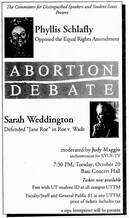 Did the response at the Bass Hall debate encourage you? Oh, yes. And some of the questions that the students had come up with were far better than any that I could have come up with. I loved it. I think that what I do see is that young people were really involved in some of the recent marches in clinic defense. I just hope that will be a sustained interest. It seem there’s more of an “exhale” now that Clinton is in office. It’s like... “Have fun. But we need to go back to work.” We all deserve to celebrate. But then we have to get back to work. What door does choice open up? Like against drug testing as an invasion of privacy? See, actually, the Supreme Court has not extended that issue. Now maybe some of the state courts will. In terms of what is private, the Supreme Court has sided with Roe v Wade. But there hasn’t been a major advance since Roe. I guess that part of what I was saying is that I’d like to see young people start some of their own organizations that would work on family leave, which has now passed with Bill Clinton being in. But it’s a whole wide-range of issues. But nobody can start them for them. They have to do it themselves. And so I think that’s why — with the new interest in some of these issues — we’ll also see some activism. And now there are so many people who are underemployed... That’s what happened to us. My generation of women was underemployed. And so that’s why we poured so much energy into social issues. Because, at work, I was typing. But I poured my energy into issues. And I think there’s a lot of people who are underemployed who have a lot of extra energy, talent and creative ability. So I wish they had time to channel them into social issues. Maybe they will. That would be nice. Quentin Crisp on fame, integrity, expatriation, freedom, heroes, equal rights and death By DANIEL KUSNER | Feb. 17, 1993. 9 a.m. CST. In February of 1993, Quentin Crisp was 84 years old. And I was 23. One morning, from my tiny Austin bedroom, I dialed the number to Crisp’s apartment located in lower-Manhattan’s Bowery district. This interview with the hard-of-hearing octogenarian was the first I’d ever conducted — with anyone. To prepare, I purchased a tape recorder and phone patch at Radio Shack. Back in ’93, Crisp was an unfamiliar name to most twentysomething alterna-queers living in Texas’ capital city. (I was the only person I knew who read “The Naked Civil Servant.”) However, with some prodding, I could make others recall the sprightly walking bass-line from a familiar song: Sting’s 1988 nouveau jazz-pop single, “Englishman in New York,” which was written to honor Sting’s personal hero. The rockstar singer for The Police bonded with the erstwhile gender-fluid raconteur while making “The Bride” — the forgetful 1985 celluloid adaptation of Mary Shelley's “Frankenstein” (which also starred Jennifer Beals and Geraldine Page). Sting played Baron Frankenstein, and Quentin was his assistant, Dr. Zalhus. At the time of this phone call, Crisp’s star was about to rise yet again. Less than a month after our chat, Sally Potter’s “Orlando” would hit movie theaters in the UK. Gorgeously photographed, Crisp portrayed England’s Elizabeth I — a very arch, very forlorn, very touching old queen. “Orlando” nabbed two Oscar nominations: Best Art Direction and Best Costume Design. Even though Quentin and I had previously traded letters, this bland Austin-to-Manhattan phone conversation sparked a media dialogue that lasted for six years — including the time Quentin referenced me in his diaries.... INTERVIEW TRANSCRIPT CRISP: Oh, yes? KUSNER: Good morning, Quentin. Good morning. Yesterday, we spoke. You agreed to a phone interview. Yes. So tell me: What have you been working on recently? Can you speak very loud? I’m now very deaf. OKAY! WHAT HAVE YOU BEEN WORKING ON RECENTLY? I’m not working anymore. I became too ill to continue to write my diary in The Native, which is a paper published in New York. So now I really don’t do anything. Who would you like to meet that you haven’t already met? I don’t mind. I meet anybody who wishes to meet me. How’s life in New York City treating you? Well, of course, life is very easy for me in America — compared with England. Because here in the U.S., everybody is your friend. What are you scared of? I suppose I would be fittingly frightened if attacked. But, of course, it’s much less frightening to live in New York than London. Because in London, nobody is your friend. Has America abused its right to freedom of speech? I don’t think that freedom of speech is a good thing. This idea that everybody should say everything is unpleasant. I’m very guarded in what I say. What’s more important: wisdom or style? They’re inseparable. You only know whether something is wise from the way it’s put, which is for style. Homosexuals are the only minority that cannot reproduce itself. With that in mind, what’s your opinion about gay rights concerning lifting the military ban and gay marriages? Well, it’s not for me to upstage a Kennedy. But I do think that the gay people might do something for America instead of making demands for themselves. Okay... Anything else? Not really. When you were a child, what did you want to be? A chronic invalid. Who have been some of your heroes? I don’t think I ever had any heroes. This idea of role models is entirely new. There were no role models when I was young. What was the last film you watched? I can’t now remember. I was taken to see “The Last of the Mohicans,” which is kid’s stuff, of course. I go to the movies less often now than in a time gone by. Which is more important: fame or integrity? I don’t think fame without integrity is of any use. I mean, what do you want? If you want fame at all — is to be known for who you are. Is there any message you can provide for today’s youth? I don’t think there is any message — except that the young should all stop thinking that they have rights. Have you been provoked into any arguments recently? Not really. No. What do you think of arguments? Well, genuine argument is fine. Mere wrangling, of course, is useless. Sting immortalized you as the “Englishman in New York.” How would you like to be remembered? Those who ask how you want to be remembered think they will look down from a cloud and count the people at their funeral. I’ve got news for them: They’ll be dead. It doesn’t matter how you’re remembered. You’re dead. Quentin apartment, exterior.
|
